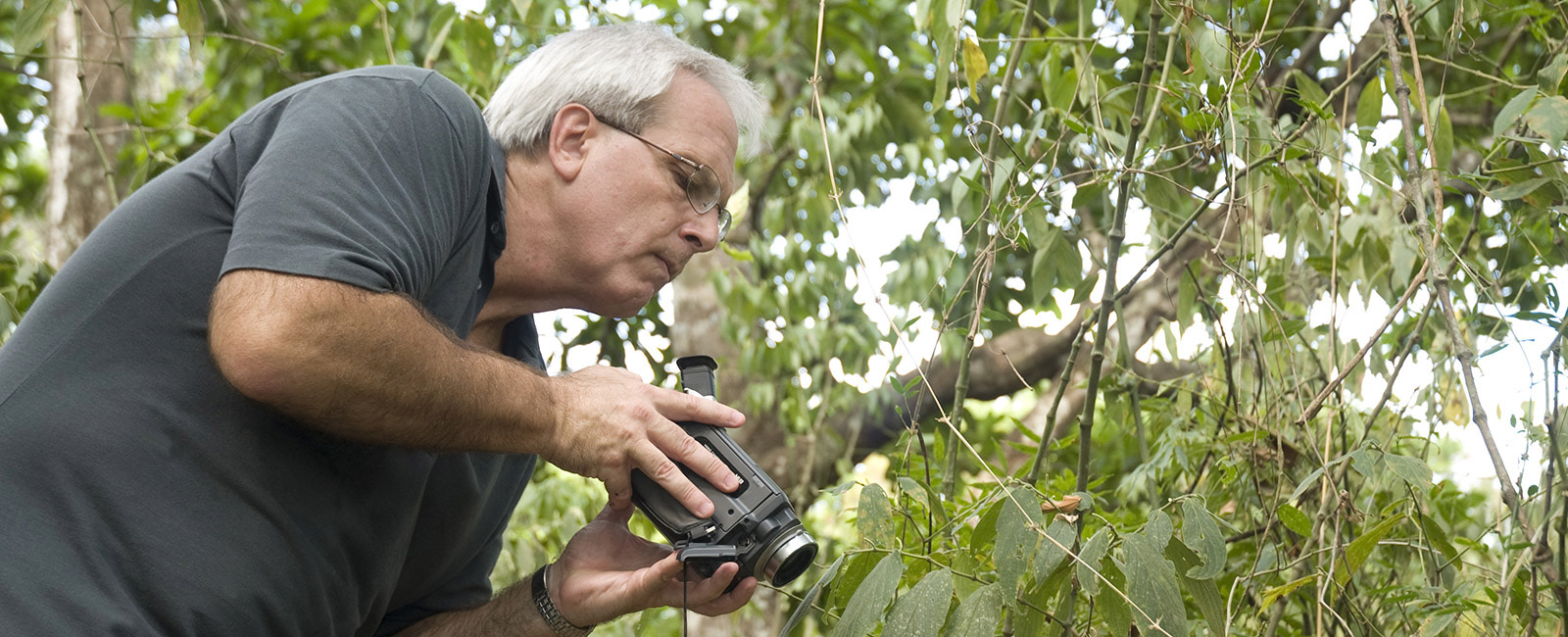Amazonia researchers Lovejoy and Laurance win the BBVA Foundation Frontiers of Knowledge Award in Ecology and Conservation Biology
The Ecology and Conservation Biology Award in this inaugural edition of the BBVA Foundation Frontiers of Knowledge Laureate is shared by biologists Thomas E. Lovejoy and William F. Laurance of the Smithsonian Institution (United States). According to the jury, the new laureates’ research in Amazonian Brazil is of fundamental importance, allowing us for the first time “to measure the manifold consequences of habitat fragmentation for the integrity of tropical forests”, and to scientifically simulate how they will cope in future.
30 January, 2009
Lovejoy and Laurance launched the Biological Dynamics of Forest Fragments Project (BDFFP) in the late 1970s. Fragmentation is among the direst threats facing natural ecosystems. The BDFFP’s study area spans more than 1,000 km2 of virgin forest, including a series of experimentally isolated fragments. Researchers there track the “before and after” of ecosystem fragmentation with regard to the abundance of species, obtaining novel data of immense value.
The jury of the BBVA Foundation Frontiers of Knowledge Award also singled out both researchers’ endeavors in training new generations of Amazonia researchers and in sharing skills and knowledge to ensure their work is carried on for years to come; indeed their conservation practices have become benchmarks of their kind.
In the words of the jury’s citation, “The awardees are recognized for their contributions to understanding the effects of land use change on biodiversity and ecosystem processes (…) Their work has revealed many unexpected features of habitat fragmentation, such as dramatically increased mortality in forest trees, with far-reaching consequences for the preservation of forest biodiversity and carbon pool dynamics. Insights from this study have significantly influenced conservation science and practice”.
The awardees are also applauded for their analyses of the impact of global change phenomena on tropical forests, and for developing the crucial conservation policy mechanism for protecting natural landscapes known as ‘debt-for-nature swaps’.
The jury in this first edition of the Frontiers of Knowledge Award in Ecology and Conservation Biology was chaired by Daniel Pauly, Director and Principal Investigator at the Fisheries Center, University of British Columbia (Canada), and formed by Joanna Burger (Rutgers University, United States), Daniel P. Faith (Australian Museum, Australia), Ilkka Hanski (University of Helsinki, Finland), Robert D. Holt (University of Florida, United States), Gary Meffe (Editor of Conservation Biology, United States) and Pedro Jordano (Doñana Biological Station, CSIC).
“Amazonia is drawing close to the point of no return”
Thomas Lovejoy declared himself “deeply honored” to receive this prize, the more so as the achievement being recognized is “basically an attempt to understand biological diversity and to ascertain how we can co-exist with the marvelous variety of life to be found in the tropical rainforest”.
“Amazonia is now perilously close to the point of no return. Ecosystem degradation is advancing much faster than we imagined”
This researcher’s scientific studies leave little room for doubt: “Amazonia is now perilously close to the point of no return. Ecosystem degradation is advancing much faster than we imagined, though we must take hope from the ambitious conservation initiatives that are now starting up”.
William Laurance greeted the award as “a fantastic recognition, from an organization like the BBVA Foundation devoted to knowledge generation, for many years of research in the Brazilian tropical forest”. His and Lovejoy’s chief objective during this time has been to understand the consequences of ecosystem fragmentation, “but lately we have observed how this threat is ‘conspiring’ with other pernicious processes like climate change and deforestation. We need to understand how this interaction comes about”.


